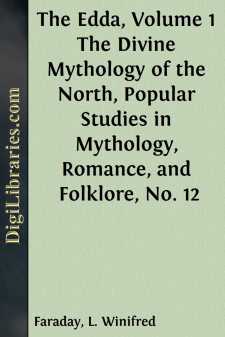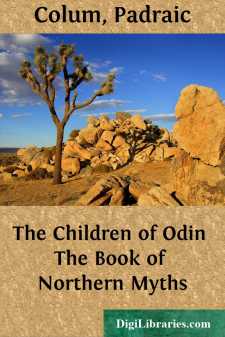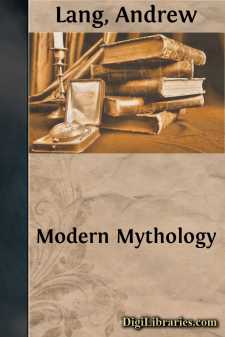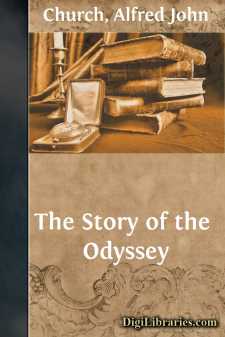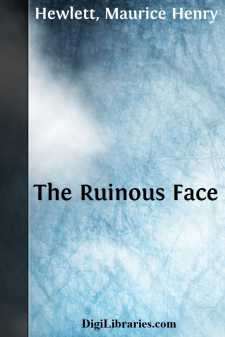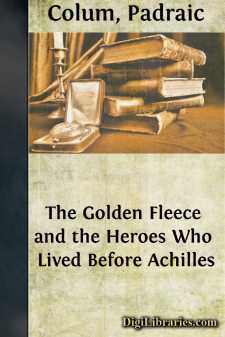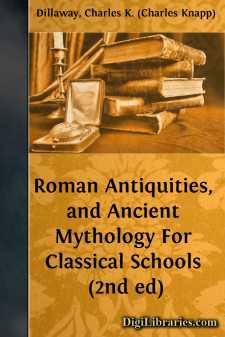Social Science
- Americana 1
- Anthropology 4
- Archaeology 7
- Criminology 2
- Emigration & Immigration 2
- Folklore & Mythology
- General 1
- Slavery 10
- Sociology 10
- Sociology of Religion 1
Folklore & Mythology Books
Sort by:
CERBERUS, THE DOG OF HADES Hermes, the guide of the dead, brings to Pluto's kingdom their psyches, "that gibber like bats, as they fare down the dank ways, past the streams of Okeanos, past the gates of the sun and the land of dreams, to the meadow of asphodel in the dark realm of Hades, where dwell the souls, the phantoms of men outworn." So begins the twenty-fourth book of the Odyssey....
more...
by:
J. A. MacCulloch
CHAPTER I. INTRODUCTORY. To summon a dead religion from its forgotten grave and to make it tell its story, would require an enchanter's wand. Other old faiths, of Egypt, Babylon, Greece, Rome, are known to us. But in their case liturgies, myths, theogonies, theologies, and the accessories of cult, remain to yield their report of the outward form of human belief and aspiration. How scanty, on the...
more...
The Divine Mythology of the North The Icelandic Eddas are the only vernacular record of Germanic heathendom as it developed during the four centuries which in England saw the destruction of nearly all traces of the heathen system. The so-called Elder Edda is a collection of some thirty poems, mythic and heroic in substance, interspersed with short pieces of prose, which survives in a thirteenth-century...
more...
by:
Padraic Colum
FAR AWAY AND LONG AGO Once there was another Sun and another Moon; a different Sun and a different Moon from the ones we see now. Sol was the name of that Sun and Mani was the name of that Moon. But always behind Sol and Mani wolves went, a wolf behind each. The wolves caught on them at last and they devoured Sol and Mani. And then the world was in darkness and cold. In those times the Gods lived, Odin...
more...
by:
Andrew Lang
INTRODUCTION It may well be doubted whether works of controversy serve any useful purpose. ‘On an opponent,’ as Mr. Matthew Arnold said, ‘one never does make any impression,’ though one may hope that controversy sometimes illuminates a topic in the eyes of impartial readers. The pages which follow cannot but seem wandering and desultory, for they are a reply to a book, Mr. Max Müller’s...
more...
INTRODUCTION Three thousand years ago the world was still young. The western continent was a huge wilderness, and the greater part of Europe was inhabited by savage and wandering tribes. Only a few nations at the eastern end of the Mediterranean and in the neighbouring parts of Asia had learned to dwell in cities, to use a written language, to make laws for themselves, and to live in a more orderly...
more...
INTRODUCTION In many parts of the country when the soil is disturbed arrow heads are found. Now, it is a great many years since arrow heads have been used, and they were never used by the people who own the land in which they appear or by their ancestors. To explain the presence of these roughly cut pieces of stone we must recall the weapons with which the Indians fought when Englishmen, Frenchmen,...
more...
THE RUINOUS FACE When the siege of Troy had been ten years doing, and most of the chieftains were dead, both of those afield and those who held the walls; and some had departed in their ships, and all who remained were leaden-hearted; there was one who felt the rage of war insatiate in his bowels: Menelaus, yellow-haired King of the Argives. He, indeed, rested not day or night, but knew the fever...
more...
by:
Padraic Colum
I. THE YOUTH JASON A man in the garb of a slave went up the side of that mountain that is all covered with forest, the Mountain Pelion. He carried in his arms a little child. When it was full noon the slave came into a clearing of the forest so silent that it seemed empty of all life. He laid the child down on the soft moss, and then, trembling with the fear of what might come before him, he raised a...
more...
CHAPTER I. Foundation of Rome and Division of its Inhabitants. Ancient Italy was separated, on the north, by the Alps, from Germany. It was bounded, on the east and north-east, by the Adriatic Sea, or Mare Superum; on the south-west, by a part of the Mediterranean, called the Tuscan Sea, or Mare Inferum; and on the south, by the Fretum Siculum, called at present the strait of Messina. The south of...
more...




